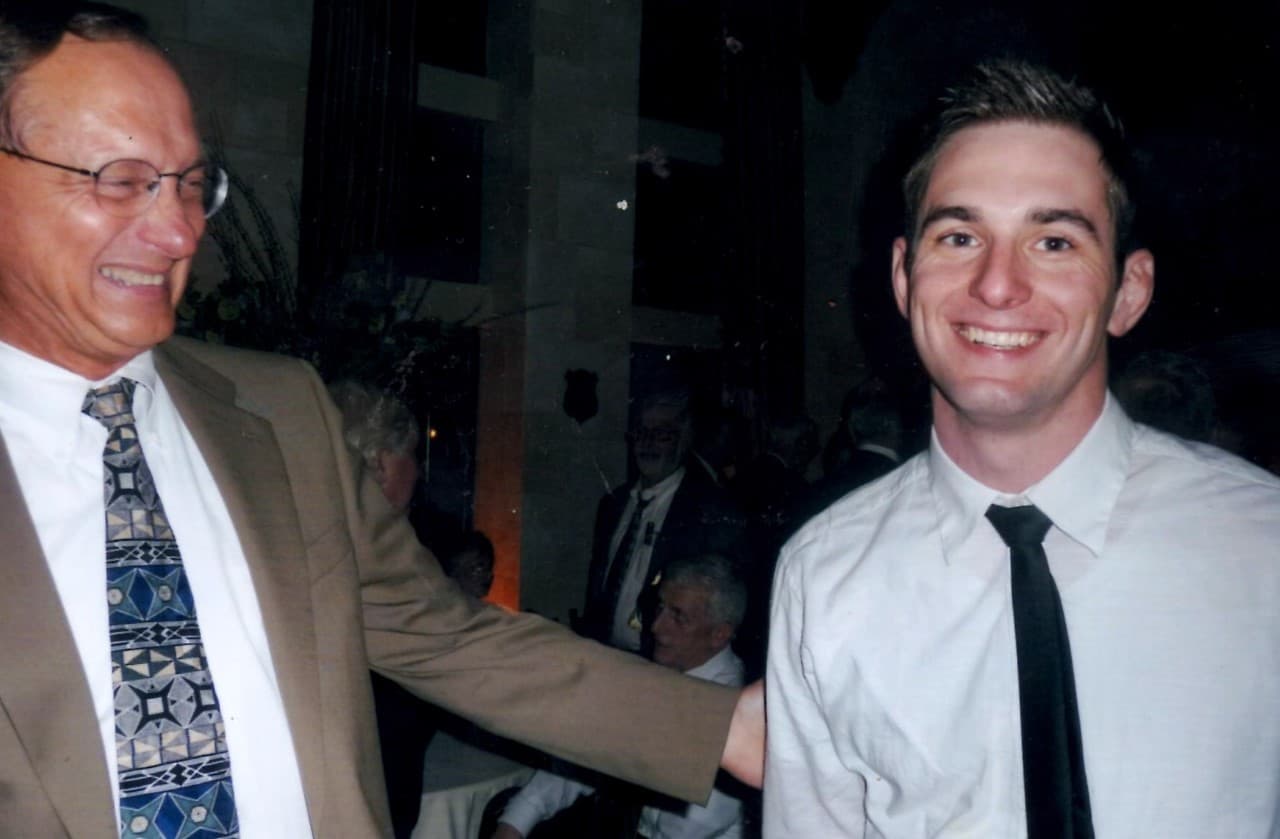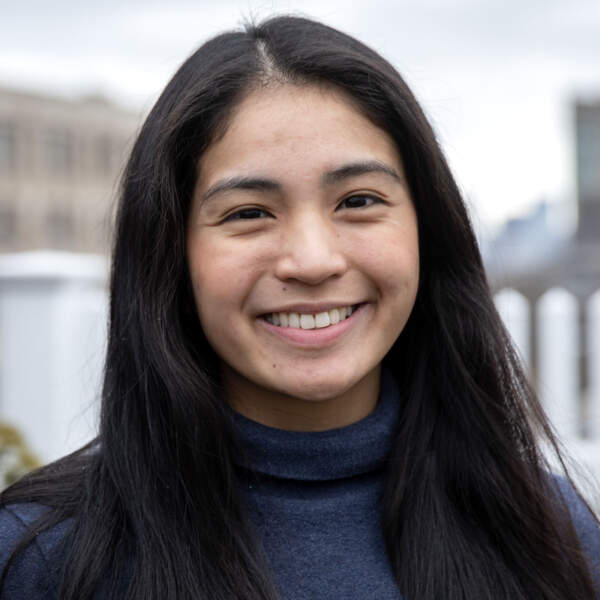Advertisement
Local film director of 'The House We Lived In' on memory and mental health
Resume"The House We Lived In" is documentary filmmaker Tim O'Donnell's most personal work yet.
The teacher-turned-filmmaker from Amesbury documents his father's miraculous recovery after a fall that left him in a coma. But when his father, Tod, wakes up from the coma, there's a lot he can't remember — including the house O'Donnell grew up in. So the film becomes a journey to the past in the hopes of triggering old memories.
In so doing, O'Donnell must grapple with his father's financial difficulties and addictions. He also has to deal with his own struggles with mental health.

This full-length documentary is a decade in the making and extends on themes O'Donnell first explored in the 2012 short film — "No Quit" — that was adapted for ESPN. "The House We Lived In" is much more experimental, employing project installations and scene reenactments, to capture the complexity of memory.
Speaking with All Things Considered host Lisa Mullins, O'Donnell talked about watching his dad's progress, and the challenges and joys of turning his family's experience into a film.
Interview Highlights
On playing his dad's favorite song while he was in a coma:
"There's not a lot of knowledge in the medical community about what's happening [when you're in a coma], but we do know that it can help to have the people in the room to be talking and telling him what's happening. He loves horse racing and golf, so we'd play all these different audio books and his favorite songs. And 'Love Me, Tender' by Elvis Presley is playing in a scene where we're trying to talk to him and sort of coach him and get him ready for this next phase, which is the biggest challenge of his life: waking up from a coma and now having to relearn everything."
On how he captured the moment his dad woke up:
"I really took to the camera and it became my passion. And it also became my therapeutic method of dealing with something that was really challenging ... At some point it was just, 'I just want another image of my dad. He's in a coma. They don't know what's going on.' So the camera became like, 'All right, this is it.' "
On returning to their old house and the hope for his dad's recovery:
"It was wild to be back at the old house with my dad and my older brother. Just getting a little piece of that, some [memories] are starting to come back. He starting to recall these things. And so there's this hope that it's all going to come back."
On how making the film affected his mental health:
"The documentary community is doing a good job of of talking about some of the carried over trauma — or being able to take care of yourself — while you're doing this kind of work.
"I've been very lucky. I've been able to tell some incredible stories, meet some amazing people. But there's just something about really digging in to your own family that you really have to be careful about. I got to go through that.
"I had reoccurring dreams for nine years of the old house. A lot of it is tough moments with the family. There's a lot of my dad, a former alcoholic — he's addicted to gambling. That's part of the film."
On deciding how much to reveal about his family:
"My family started watching cuts [for this film] four years ago, and so they had an immediate response. And sometimes it was a conversation about what do we want to reveal, what do we want to keep private. And also, how do we honor what actually happened?
"I think I'm really lucky because my family really understood the importance of keeping the gambling in, because that's part of Tod. And that's OK. You know, it's OK to talk about that. It's OK to have these addictions or problems and work that out."
On his dad's reactions to the film:
"He's proud. He tells everyone about it. He'll be anywhere, like Dunkin' Donuts, and he'll be like, 'You know, I fell 10 years ago... and my son's been filming me.' And people are just like, 'What?'
He's a storyteller, and that is also his way of making sense of all this. And honestly, it's helped all of us — my dad talking about all this in front of us. There's no like, 'Oh, hush, hush, let's not talk about that sad thing.' He's really flipped it for us. So it's celebratory in some ways... in an Irish Catholic family kind of way."
This segment aired on April 29, 2022.

